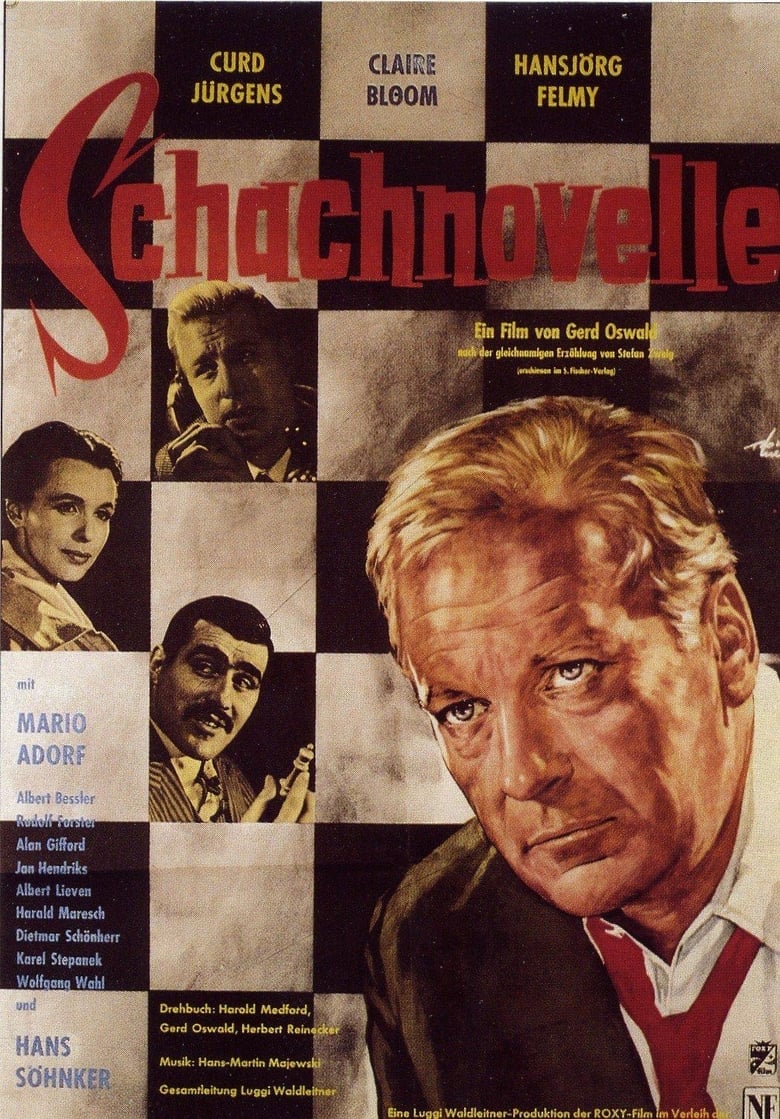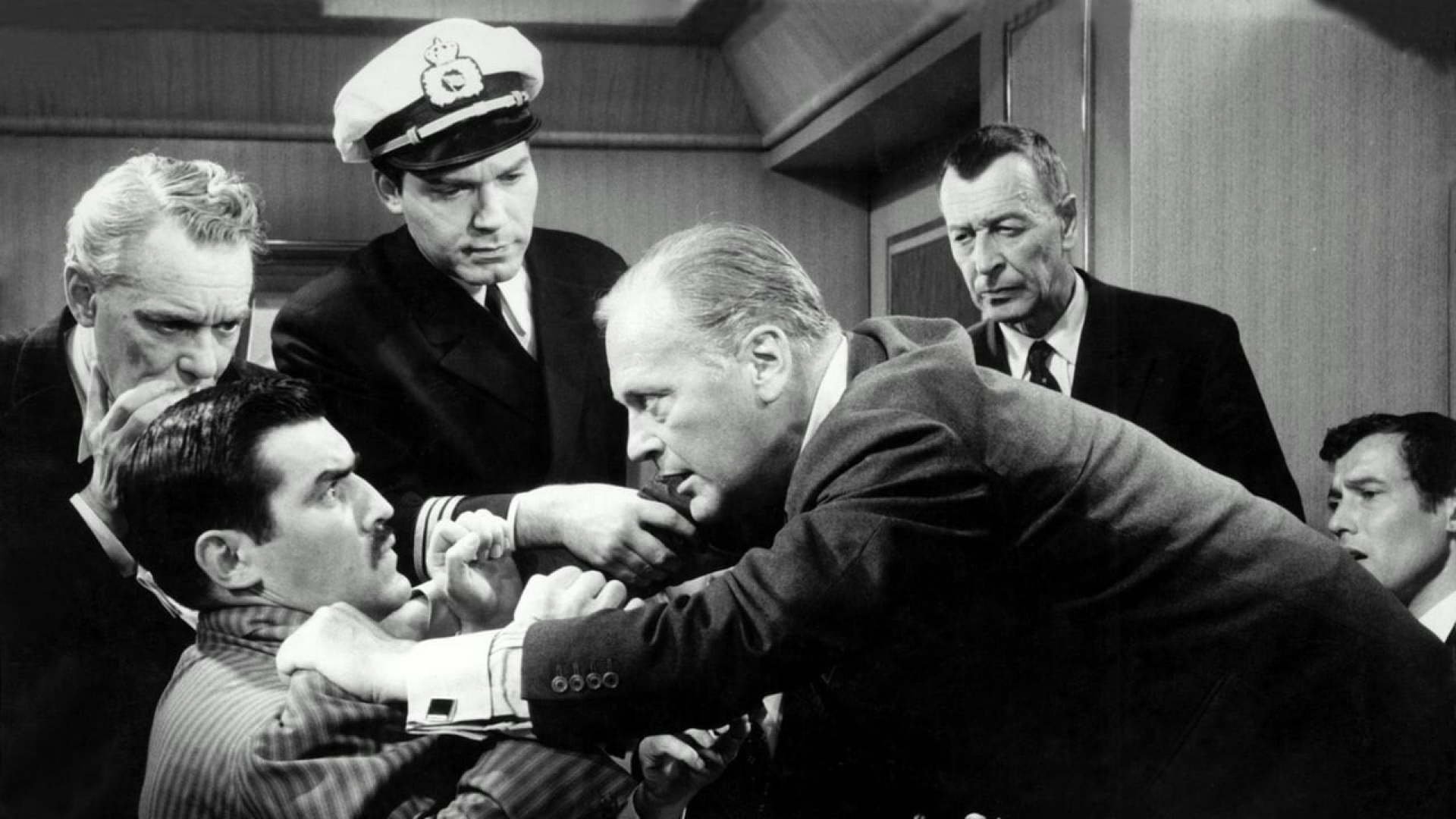
Brainwashed
Werner von Basil, a Austrian intellectual, was captured by the Nazis in 1938. They want to break him to confess smuggling. Without any mental sustenance, the only thing left to keep his mind busy is an old tactics book for chess.

Aqueronte72@Aqueronte72
> Considerations to prefer a suicide or, I Stefan Zweigh, hereby underline the art of imagining myself as the main cartoon character (which I will not be) of the 300 copies in the posthumous novel (which not only me, but no one else in Germany will be able to read ). We must thank Gerd Oswald for such a neat and respectful adaptation of the novel, but for ellipsing the origins of Balaam's donkey, Mr. Czentovich, and the way in which, without a trade or practical intelligence, the priest suddenly discovered the genius of chess stuck in the head of that conceited and disagreeable fool with other people; curiously becoming world champion and coinciding as a passenger with Zweigh's alter-ego, Werner von Bisal on the ocean liner. Already on the high seas, Von Bisal suddenly remembered Aljechin's game against Bogoljub, he recognized it from the endless game that he himself reviewed, playing without playing, locked away to the echo of his breathing and the breath of his loneliness interrupted by moderate drops of a merciless leak from the sink. Who would have thought? That afternoon he almost gave in to Hans Berger, and suddenly, expecting the fatuous leader of the Gestapo, to come across the chess book in his leather jacket like a flash of lightning. It is known that in the healing or catharsis achieved by dramatic representations, both the authors and the public themselves unburdened their nightmares or repressed desires, and this is especially true with Zweigh and his "Chess Novel". With Von Bisal, Zweigh allowed himself all the luxury of naivety that he himself did not allow himself in life. Despite the timely warnings that Bishop Ambros and even the dancer and friend Irene Andreny gave him, at the time of his arrest, von Bisal still believed that he would soon be released after the fourth Sunday in prison. The last 15 minutes in the denouement, with Von Bisal laughing like a joker and being himself his own opponent in bed or on the ceiling of the prison bedroom, Gerd Oswald achieves an amazing sequence with an extraordinary expressionist wink.

Aqueronte72@Aqueronte72
> Considerations to prefer a suicide or, I Stefan Zweig, hereby underline the art of imagining myself as the main cartoon character (which I will not be) of the 300 copies in the posthumous novel (which not only me, but no one else in Germany will be able to read ). We must thank Gerd Oswald for such a neat and respectful adaptation of the novel, but for ellipsing the origins of Balaam's donkey, Mr. Czentovich, and the way in which, without a trade or practical intelligence, the priest suddenly discovered the genius of chess stuck in the head of that conceited and disagreeable fool with other people; curiously becoming world champion and coinciding as a passenger with Zweig's alter-ego, Werner von Bisal on the ocean liner. Already on the high seas, Von Bisal suddenly remembered Aljechin's game against Bogoljub, he recognized it from the endless game that he himself reviewed, playing without playing, locked away to the echo of his breathing and the breath of his loneliness interrupted by moderate drops of a merciless leak from the sink. Who would have thought? That afternoon he almost gave in to Hans Berger, and suddenly, expecting the fatuous leader of the Gestapo, to come across the chess book in his leather jacket like a flash of lightning. It is known that in the healing or catharsis achieved by dramatic representations, both the authors and the public themselves unburdened their nightmares or repressed desires, and this is especially true with Zweig and his "Chess Novel". With Von Bisal, Zweigh allowed himself all the luxury of naivety that he himself did not allow himself in life. Despite the timely warnings that Bishop Ambros and even the dancer and friend Irene Andreny gave him, at the time of his arrest, von Bisal still believed that he would soon be released after the fourth Sunday in prison. The last 15 minutes in the denouement, with Von Bisal laughing like a joker and being himself his own opponent in bed or on the ceiling of the prison bedroom, Gerd Oswald achieves an amazing sequence with an extraordinary expressionist wink.
